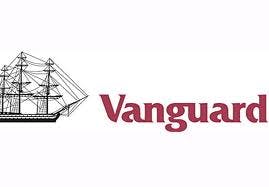
While Vanguard MSCI Emerging Markets (NYSEARCA:VWO) was losing assets in November, it’s primary rival, the iShares MSCI Emerging Markets Indx (NYSEARCA:EEM), was busying raking in $2.34 billion in fresh capital, Bloomberg reported.
On the surface, it appears VWO’s loss of assets can be blamed on Vanguard’s October announcement that the ETF and 21 of its other funds will stop using MSCI Indexes. VWO will move over to the FTSE Emerging Markets Index next year. Vanguard even said in the aforementioned Bloomberg piece it anticipated some asset “leakage” as a result.
So blaming VWO’s one-month asset woes on an index change and some pilfering by iShares MSCI Emerging Markets Indx (NYSEARCA:EEM) are nice, tidy excuses. They are convenient excuses, too. On the other hand, this could be like a suspense movie where the pieces of a major crime case fit together too nicely and, later on, one intrepid cop, probably named Jack, gets to the bottom of a wider-ranging problem.
In the essence of clarity, no one is saying Vanguard MSCI Emerging Markets (NYSEARCA:VWO) is going out of business. On the basis of its 0.2 percent expense ratio, one that will likely come down at some point, the fund will remain attractive to investors for years to come. It is also not overly ambitious to say VWO will remain one of the five largest ETFs.
However, maybe, just maybe, the November outflows highlight another situation: Competition. As in VWO faces a lot more competition than just EEM. It is convenient to think that every dollar that leaves VWO goes to EEM, but the reality is that probably is not the case. Perhaps VWO’s November outflows indicate that investors are becoming a bit more savvy when it comes to multi-country emerging markets ETFs.
Take the example of the WisdomTree Emerging Markets Eqty Incm Fd (NYSEARCA:DEM). Yes, DEM charges 0.63 percent per year, more than triple VWO’s expense ratio. DEM makes up for that with a dividend yield that is more than 240 basis higher than VWO’s. Over the last 24 months, DEM has been the better performer and 400 basis points less volatile than Vanguard MSCI Emerging Markets (NYSEARCA:VWO).
And DEM is gaining assets in a big way. The fund celebrated reaching the $3 billion in AUM level in the first quarter. That number was close to $4.6 billion at the start of trading today. A better than 50 percent AUM jump in less than a year’s work is impressive, no doubt about it.
It is also reasonable to surmise that some of VWO’s lost assets have flowed to the newly minted iShares Core MSCI Emerging Markets (NYSEARCA:IEMG). Rather than lower the fees on EEM to better compete with VWO, BlackRock, Inc. (NYSE:BLK), parent company of iShares, just created a new ETF. The idea appears to be working as IEMG has hauled in more than $127 million in AUM in less than two months of trading, according to iShares data. IEMG undercuts VWO with annual fees of 0.18 percent.
VWO has another problem in the form of the iShares Inc. (NYSEARCA:EEMV). As been previously noted, EEMV is a credible alternative to both EEM and VWO for investors looking for a low volatility entry to emerging markets.
With an expense ratio of 0.25 percent, EEMV is far cheaper than EEM and not much more expensive than VWO. Here is the problem for VWO: EEMV has outperformed the Vanguard fund by 500 basis points this year. How long can a difference of five basis points in fees outweigh 500 basis points in additional alpha, especially when EEMV is less volatile?
Bottom line: Some of VWO’s assets may have gone to EEMV. The latter had $544 million in AUM in mid-October. Today, that number is north of $672 million.
Another fund that does not get the credit it deserves for being a thorn in VWO’s side is the PowerShares DWA Emerg Markts Tech (NYSEARCA:PIE). The knock on PIE compared to VWO is fees. PIE charges 0.9 percent a year, but the ETF makes up for it.
VWO has consistently lagged PIE by margins that are wide enough to justify paying up for the PowerShares offering. Over the past 12, 24 and 36 months and year-to-date, PowerShares DWA Emerg Markts Tech (NYSEARCA:PIE) has bested Vanguard MSCI Emerging Markets (NYSEARCA:VWO). Over the past 36 months PIE has delivered triple the returns of VWO and has been less volatile than the Vanguard fund over that time.
All this is to say convenient excuses do not always tell the entire story. Index change or not, VWO has some serious competition in the multi-country emerging markets ETF space. The danger for VWO it is trumped by some of the ETFs highlighted here either on a yield basis, a performance basis or both. Again, Vanguard MSCI Emerging Markets (NYSEARCA:VWO) is not going anywhere, but it might have more Novembers ahead of it if it cannot keep pace with its marquee rivals.
This article was originally written by The ETF Professor, and posted on Benzinga.





